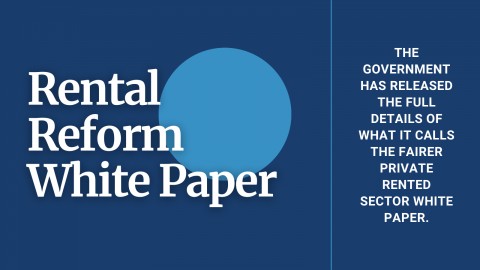
This is to form the basis of a Bill to out its reforms into law.
It will ban Section 21 evictions and extend the Decent Homes Standard to the sector.
It will also end what it calls “arbitrary rent review clauses, give tenants stronger powers to challenge poor practice, unjustified rent increases and enable them to be repaid rent for non-decent homes.”
It will be illegal for landlords or agents to have blanket bans on renting to families with children or those in receipt of benefits.
And it will make it easier for tenants to have pets, a right which the landlord must consider and cannot unreasonably refuse.
All tenants are to be moved onto a single system of periodic tenancies, which in the government’s words mean “they can leave poor quality housing without remaining liable for the rent or move more easily when their circumstances change.”
A tenancy will only end if a tenant ends or a landlord has a valid reason, defined in law.
There will be a doubling of notice periods for rent increases and tenants will have stronger powers to challenge them if they are unjustified.
The government says it is also “giving councils stronger powers to tackle the worst offenders, backed by enforcement pilots, and increasing fines for serious offences.”
There will also be a new Private Renters’ Ombudsman to enable disputes between private renters and landlords to be settled quickly, at low cost, and without going to court.
What the government calls “responsible landlords” will be able to gain possession of their properties efficiently from anti-social tenants “and can sell their properties when they need to.”
There will be a new property portal that will “provide a single front door to help landlords to understand, and comply with, their responsibilities as well as giving councils and tenants the information they need to tackle rogue operators.”
The government says: “These reforms will help to ease the cost of living pressures renters are facing, saving families from unnecessarily moving from one privately rented home to another hundreds of pounds in moving costs.
“We have already taken significant action over the past decade to improve private renting, including reducing the proportion of non-decent private rented homes from 37 to 21 per cent, capping tenancy deposits and banning tenancy fees for tenancy agreements signed after 1 June 2019, and introducing pandemic emergency measures to ban bailiff evictions.
“While the majority of private rented homes are of good quality, offering safe, comfortable accommodation for families, the conditions of more than half a million properties – or 12 per cent of households - pose an imminent risk to tenants’ health and safety, meaning around 1.6 million people are living in dangerously low-quality homes, driving up costs for our health service.
“The sector offers the most expensive, least secure, and lowest quality housing to millions of renters, including 1.3 million households with children and 382,000 households over 65. Rents are also rising at their fastest level for five years. This can damage life chances and hold back some of the most deprived parts of the country.”
And Housing Secretary Michael Gove says: “For too long many private renters have been at the mercy of unscrupulous landlords who fail to repair homes and let families live in damp, unsafe and cold properties, with the threat of unfair ‘no fault’ evictions orders hanging over them.
“Our New Deal for renters will help to end this injustice by improving the rights and conditions for millions of renters as we level up across the country and deliver on the people’s priorities.”
Article by Letting Agent Today: https://tinyurl.com/2z8ak39f
